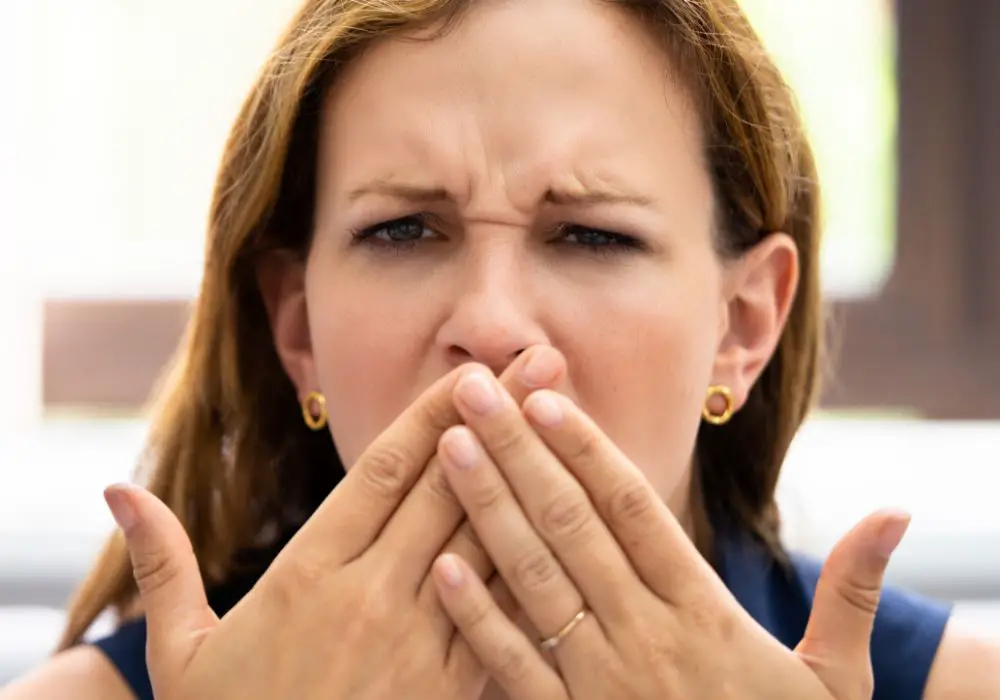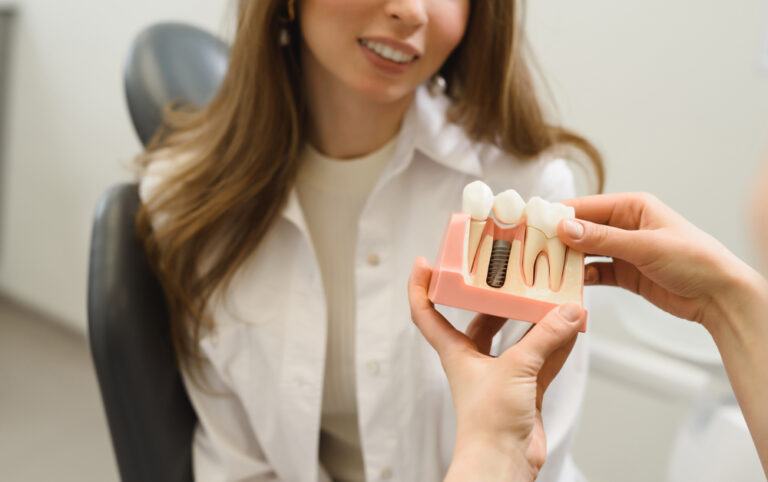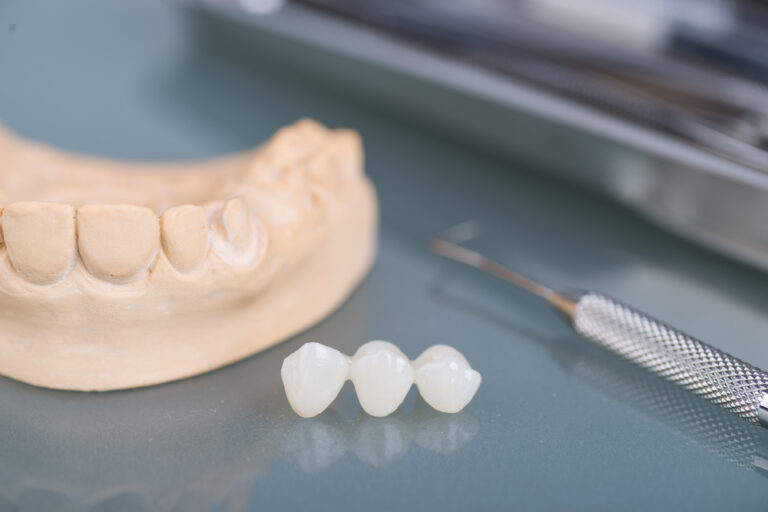It’s very common to notice an unpleasant, unnatural taste in your mouth for 1-2 weeks after having your wisdom teeth extracted. This weird taste is understandably annoying but is usually temporary and nothing to be too concerned about. By understanding in more detail what causes these tastes and how to help minimize them, you can recover from wisdom tooth surgery a little more comfortably.
What Causes the Weird Taste?
There are several reasons you may be experiencing bad tastes days after your wisdom tooth extraction:
Surgical Trauma and Bleeding
Having wisdom teeth removed, even when done as gently as possible, still requires some pulling, pressure and tearing of the gum tissue around the teeth and jawbone. This tissue trauma releases blood and other fluids that can collect near the extraction sites.
As the blood and fluids slowly drain or are reabsorbed by the body over several days, the iron and protein byproducts they contain can linger on your tongue and taste buds. This gives an unpleasant metallic, bitter or salty flavor in your mouth despite rinsing and brushing.
It’s very normal to taste residual blood for up to 7-10 days after surgery as the extraction sockets continue to ooze and heal. Certain techniques used during surgery like bone removal or tooth sectioning tend to cause more bleeding as well.
Food Debris
After wisdom tooth removal, it’s crucial to follow your dentist’s instructions to not eat, drink or rinse too vigorously, as this can displace the blood clots forming. However, some food particles or debris still can accumulate in the empty sockets or wound areas.
As this material gradually breaks down or decays over several days, it can create lasting bad tastes in your mouth. Foods like meats, sauces, spices or dressings are more likely to leave lingering flavors compared to blander foods.
Medications and Gauze
Often a medicated gauze pad is placed over the extraction sites during surgery to help manage bleeding. As this packing dissolves over 24-48 hours, any lingering fibers or medication can temporarily affect your sense of taste.
The local anesthetic shots used during extraction, along with any cauterizing agents applied to blood vessels, can also leave behind medicinal tastes that take a few days to fully go away.
Swelling and Dry Mouth
The trauma of surgery commonly causes swelling and inflammation in the mouth which can compress taste buds and affect their function. This combined with typical mouth breathing can contribute to an overly dry mouth.
Reduced saliva flow allows food debris and old blood to sit in the mouth rather than being washed away or diluted. As these substances sit and break down, the taste becomes more and more foul.
Infection
While not extremely common, occasionally wisdom tooth extraction sites can become infected due to food trapped in the sockets or bacterial contamination. Infections will produce pus and fluids that contain byproducts from pathogens and inflammatory cells. These fluids can have a bitter, unpleasant taste.
Signs of possible infection include fever, swelling that gets worse after 3-4 days, severe pain unrelieved by medication, and pus discharge. Seek dental attention promptly if any of these occur.
Smoking
Many dentists advise avoiding smoking for at least 72 hours after wisdom tooth removal, as the heat and suction can dislodge clots and irritate the wounds. However, some people resume smoking sooner, which exposes the sensitive surgical sites to toxins that can irritate tissues and leave bad tastes behind.
How Long Does This Strange Taste Last After Extractions?
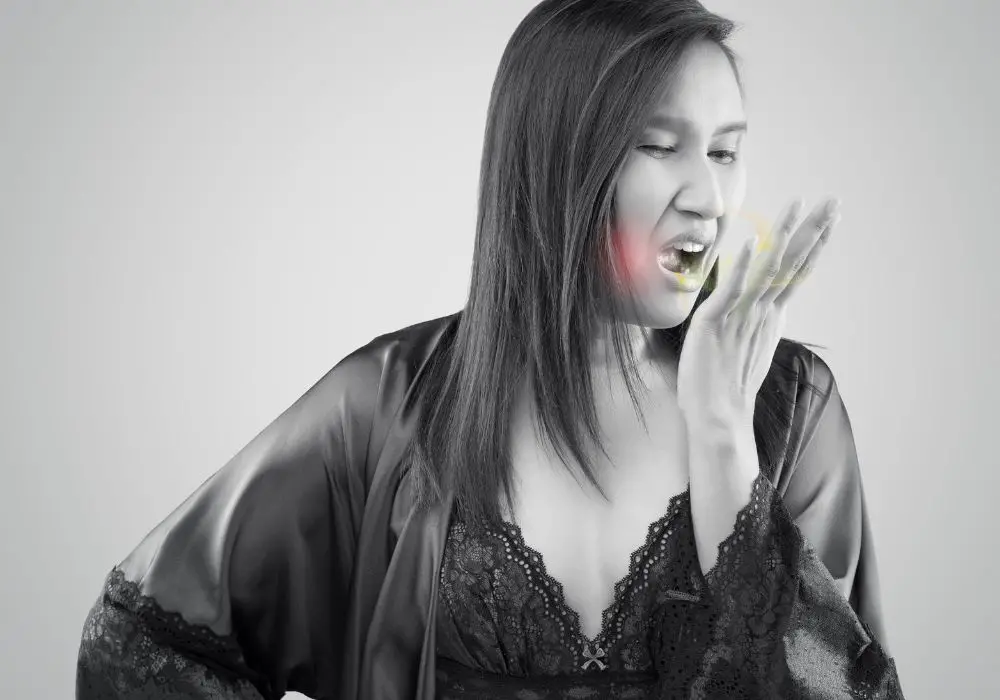
Most patients report the odd or unpleasant tastes first beginning 2-3 days after surgery, once anesthesia has worn off and initial bleeding is under control. The tastes typically peak in intensity around days 4-6 and last for a total duration of 7-14 days from the time of wisdom tooth removal.
However, this timeline varies from person to person depending on factors like:
- Number of teeth extracted
- Complexity of the extractions
- Techniques used during surgery
- Rate of personal healing
- How well post-op care instructions are followed
For example, removing fully impacted or buried wisdom teeth often causes more surgical trauma and bleeding, which can prolong taste changes.
Poor oral hygiene post-surgery allows more debris buildup and bacterial growth which affects taste. While many people report taste returning to normal after 7-10 days, it may take up to 2 full weeks for tastes to completely normalize after wisdom teeth removal in some cases.
Tips to Minimize Strange Tastes After Surgery
While the unpleasant taste is annoying, the good news is it will gradually fade as your extraction sites heal over the 7-14 day period. Here are some tips to help speed up recovery of your normal taste sensations:
Keep the Area Very Clean
Gently brushing your teeth and tongue after eating helps keep food particles away from wounds. Using prescribed medicated rinses can also keep bacteria buildup to a minimum. But avoid forceful swishing that can displace blood clots.
Drink Plenty of Fluids
Staying hydrated with cool water and juices helps rinse your mouth out naturally after eating. Saliva also gradually flushes away particles trapping bad tastes.
Chew Sugar-Free Gum
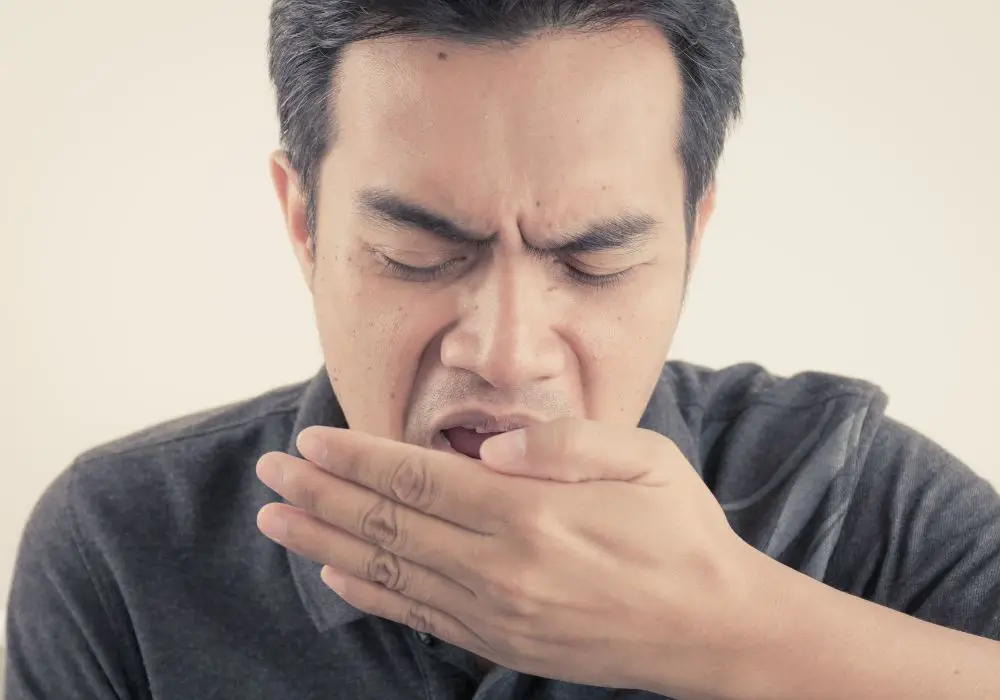
Chewing gum very gently stimulates saliva flow which washes away debris. It also helps extract any particles stuck in wounds. Opt for a sugar-free gum to avoid cavities.
Suck on Ice Chips
Letting ice chips melt in your mouth cools swollen tissue and dilutes debris and blood sitting on the tongue. The cold also temporarily numbs taste buds reducing bad tastes.
Use Oral Irrigation if Given
Your dentist may provide a plastic syringe to gently flush your mouth with water or medicated solution after eating. This can dislodge trapped material if used properly.
Stick With Soft, Cool Foods
Eating softer foods like yogurt, apple sauce, scrambled eggs or protein shakes minimizes irritation to healing wounds. Cooler temperatures also reduce strong tastes.
Take Prescribed Medications
Anti-inflammatory drugs help reduce swelling and discomfort that can affect taste. Antibiotics may be needed if an infection develops to clear up tastes faster.
Try Mint or Citrus Flavors
Sucking on mint or citrus flavored hard candies provides a strong pleasant taste that temporarily masks any lingering bad tastes in the mouth.
Use Prescribed Medicated Rinses
Your dentist may recommend using antibacterial and numbing rinses for a few days after surgery to manage oral bacteria and give temporary relief from funny tastes as the mouth heals.
See Your Dentist if It Persists
If the bad taste hasn’t improved after 10-14 days, make an appointment to have your dentist evaluate for possible dry socket or infection needing treatment.
FAQ About Weird Tastes After Wisdom Teeth Removal
Q1: Why do I still taste blood over a week after my wisdom tooth extraction?
It’s very common to continue to notice blood taste for 7-14 days after surgery as the wound still oozes small amounts of fluid. Stay hydrated and use gentle saltwater rinses to help it dissipate. Contact your dentist if bleeding is heavy.
Q2: What causes the gross/rotten taste in my mouth days after wisdom teeth removal?
This is from a combination of old blood, debris and bacteria buildup stuck near healing extraction sites and dissolving stitches. Keep the area very clean using irrigators and antiseptic rinses. The taste should improve within 7-10 days.
Q3: How long will food taste weird after having my wisdom teeth out?
It typically takes around 7-14 days for your sense of taste to return to normal after wisdom tooth surgery. The trauma, swelling and medications disrupt taste temporarily. Stick to bland soft foods until your dentist gives the all clear to eat normally.
Q4: Why do I have a bad taste when I try to suck air through the hole where my wisdom tooth was?
This is caused by the presence of debris and dissolving sutures which have an unpleasant taste when you suck air over them. Avoid sucking near extraction sites while healing. Gently rinse instead and let your dentist know if it persists.
Q5: What can I do to get rid of the horrible taste from my wisdom teeth wounds?
Use warm saltwater rinses, drink plenty of water, use any oral irrigator as instructed, chew gum to increase saliva flow, suck on mints or hard candies, and take any prescribed medications. This should help resolve the bad taste within 7-14 days after surgery.
Conclusion
In summary, experiencing odd, unpleasant or downright gross tastes for up to 2 weeks after wisdom tooth removal is very common and primarily caused by the trauma of surgery and wound healing. While annoying, it’s rarely serious if gradually improving over time. Be diligent about gentle oral hygiene, allow healing time, and avoid smoking and drinking with straws. Consulting your dentist is advised if tastes don’t start improving within 10-14 days to rule out complications. With proper care, your sense of taste should return to normal soon.

